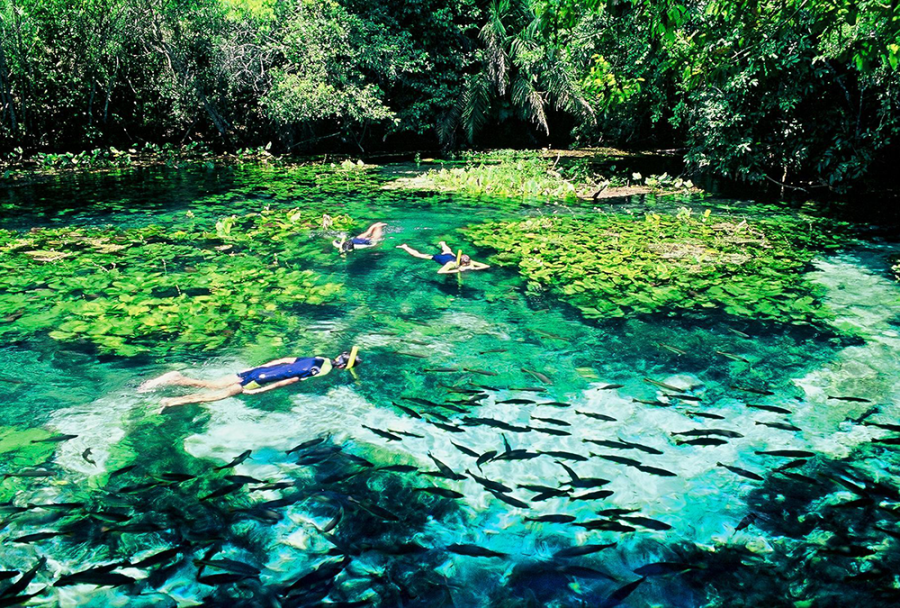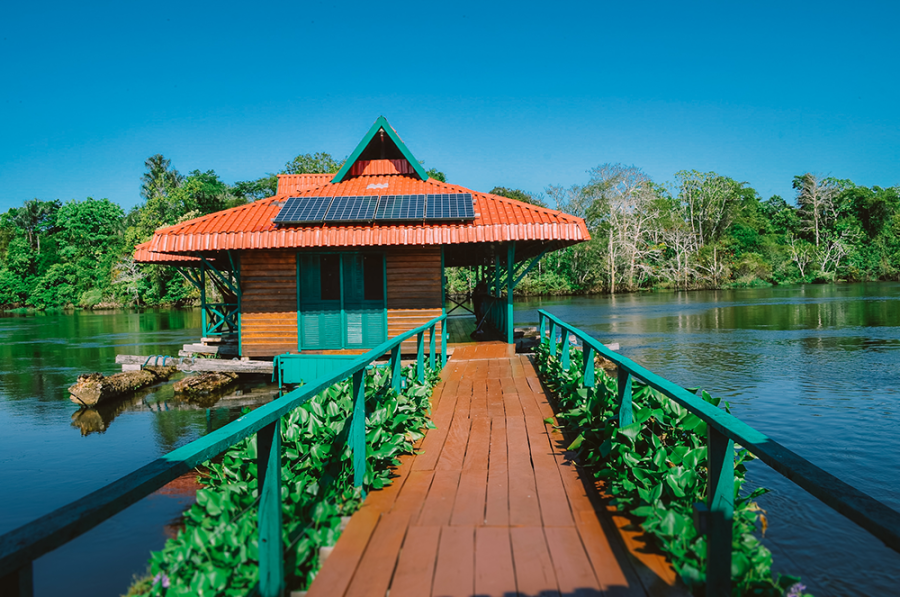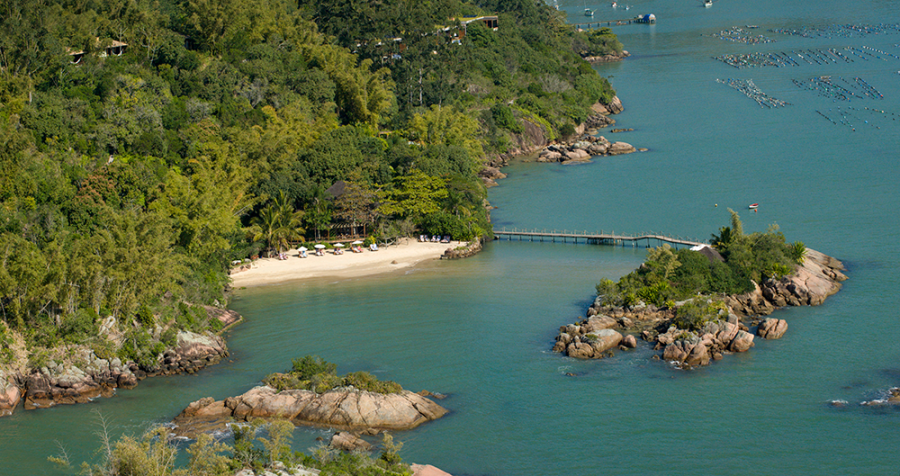The Natural Side

Brazil is more than its renowned coastlines and cosmopolitan cities. With five distinct regions, different climates, abundant flora and fauna, and sophisticated accommodations, a new attraction is developing: ecotourism.
Nature-based travel is the fastest growing travel segment in Brazil, allowing visitors to have fun while learning about conservation.
How Brazilian eco resorts—spread from north to south—take care of guests and the environment can be a source of inspiration and example for all in the attractions industry.
Zagaia Eco Resort
A destination known for its natural beauty and popular with ecotourism lovers, Zagaia Eco Resort is tucked in the southwestern corner of Mato Grosso do Sul, Brazil in Bonito, which is Portuguese for “beautiful.” It’s the gateway to the Pantanal region and is known as the site of some of the cleanest water on the continent. The city lives up to its name, enticing guests with crystal-clear rivers and animal sightings.
“Our great differential is the immense area where we are located; there are 600,000 meters of green area, and our guests are blessed daily by the presence of wild animals that roam freely around the hotel area,” says Daiane Melo, sales manager at Zagaia Eco Resort.
Jaguars, wetland alligators, and anaconda snakes are some of the species that most represent the region.
The concern for the environment led operators to create large open areas with natural lighting and bountiful air circulation. This, along with the extensive use of solar panels, makes for a small carbon footprint. Solid waste is reused as fertilizer in the garden to increase site-grown produce.
COVID-19 protocols require masks to be worn, and only one member of a guest group can approach the check-in desk at the hotel. Game rooms and saunas are currently closed, and for better air circulation, doors and windows remain open.

Uakari Lodge
In the middle of the Amazon rainforest rests a unique attraction, the Mamirauá Sustainable Development Reserve. Here, the floodplain forest disappears 39 feet below water from April through August due to the melting snow from the Andes (flood season), leaving hiking trails to be explored on small canoes. The reserve is a confluence of rivers, and it is one of the largest protected flooded forests in the world.
In this ever-changing landscape lies the Uakari Lodge, a floating hotel offering eco-adventures in the Amazon.
The lodge is operated by the riverside community with the help of the Mamirauá Institute for Sustainable Development. This social organization is supervised by Brazil’s Ministry of Science, Technology, and Innovation, and its role is to preserve the ecosystem through scientific research conducted there.
Uakari receives guests from all over the world, who stay in floating structure houses and are accompanied by local guides, including bilingual naturalists. The income generated through the resort’s operation is directed to the preservation of natural resources and local communities that the resort’s employees call home.
“Today 99% of all positions at the hotel are held by residents of the riverside communities of the Mamirauá Reserve, who are in all positions, including the general manager of the business,” says Gustavo Pinto, marketing director.
Uakari is a research laboratory, where resort guests participate in the social and environmental responsibility activities and conservation efforts. There are 10 rooms that can accommodate up to 24 guests inside the structure that was made using sustainable practices. The energy is of solar origin; rainwater is collected and stored, with its effluents treated before returning to the river. Activities range from canoeing and hiking to visiting local communities (currently postponed due to COVID-19). The inn offers programs where tourists can study the jaguar, from its physical characteristics to its hunting habits. All of the revenue from the program is donated to the conservation of the jaguar, which is in danger of extinction. Addition-ally, the lodge offers programs such as jungle photography courses and the “Night in the Jungle” excursion, where visitors spend the night with a guide in a jungle tree house.
Uakari Lodge has put COVID-19 protocols in place, including mandatory mask-wearing in all common areas, social distancing, and frequent cleaning of facilities.

Ponta dos Ganchos
A piece of ancient Brazil lives on through the small fishing villages, whose population descends from the first Azorean immigrants from the coast of Santa Catarina in southern Brazil. The town of Governador Celso Ramos is home to Ponta dos Ganchos, a luxury resort surrounded by the emerald waters of Brazil’s southern coast. The island serves as a backdrop for numerous proposals and wedding parties.
Ponta dos Ganchos operates 25 bungalows that showcase a rustic yet elegant décor, which is one of the hotel’s trademarks, along with sustainable gastronomy. Nonô’s Organic Garden became an attraction within its own right at the hotel in 2008. Inside the garden, the resort grows items to be served in restaurants and manages its organic waste, effectively creating a cycle of conscientious consumption and reuse. The resort also promotes socio-environmental practices—from planting tree seedlings to supporting the Guga Kuerten Institute, which supports children’s education and youth sports programs.
“In addition to a solidary attitude of social support for the region, our intention as a property is also to reinforce the urgent awareness of reducing our carbon responsibility on the planet in the search for a more sustainable and balanced lifestyle and in guaranteeing a greener future for future generations,” says Fernanda Makhoul, the resort’s sales and marketing director.
Ponta dos Ganchos also offers unique experiences, like tours aboard a fishing boat and trail hikes through the Atlantic Forest that lead to the tranquil waters of the Atlantic Ocean.
During the pandemic, the resort has required temperature checks and masks in the common facilities of the hotel, as well as disposable gloves for employees when transporting luggage.
- Mila Soares is a Brazilian journalist based in Orlando covering attractions for Funworld and publications in Brazil.
